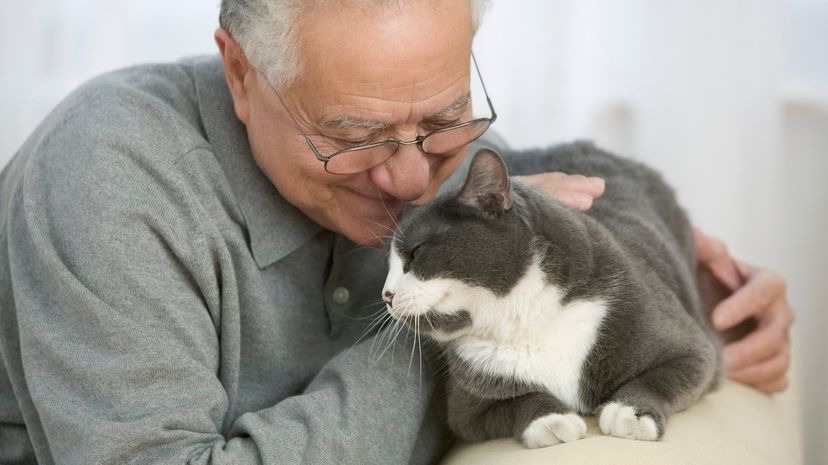Choosing a pet is a big decision. For many households, the question “What Is A Good Pet?” is the starting point of an exciting journey. Thousands of years ago, animals were domesticated for practical reasons like providing food or protection. Today, while those practical roles have largely faded, the desire for animal companionship is stronger than ever. We welcome pets into our homes and hearts, seeking connection and joy.
According to surveys, millions of households include pets, showing just how much we value these animals in our lives. But with so many options, finding the right fit can feel overwhelming. What makes a pet “good” isn’t universal; it depends entirely on you, your lifestyle, and what you’re looking for in an animal companion.
This article will explore what truly defines a “good pet” and guide you through some popular choices. We’ll move beyond just listing animals and delve into the key factors that make a pet a wonderful addition to your life, ensuring a happy and harmonious relationship for both you and your new friend.
A Good Pet Fits Your Lifestyle
The first step in determining what is a good pet for you is honestly assessing your lifestyle. Consider your daily routine, living space, and the amount of time you can realistically dedicate to pet care. Are you often away from home? Do you live in a small apartment or a large house with a yard? Are you highly active or prefer a quieter home life?
For busy individuals or those living in smaller spaces, low-maintenance pets might be ideal. Betta fish, for example, require daily feeding and regular tank cleaning, but don’t demand constant attention or large living areas. Similarly, reptiles like leopard geckos are relatively self-sufficient, needing feeding and a temperature-controlled environment, but are content with minimal handling. Hamsters, while needing daily care like feeding and cage cleaning, are also relatively independent and can thrive in smaller enclosures.
On the other hand, if you have more time to dedicate and enjoy an active lifestyle, a dog could be a fantastic companion. Dogs are known for their loyalty and affection, and many breeds thrive on exercise and interaction. However, they require significant time for training, walks, playtime, and socialization. Consider breeds that match your activity level; a high-energy dog needs an owner who can keep up!
A Good Pet Matches Your Personality and Preferences
Beyond lifestyle, your personality and preferences play a huge role in finding a good pet. Are you looking for an affectionate animal to cuddle with, or do you prefer a pet that is interesting to observe but less demanding of physical affection?
Cats, like dogs, can be incredibly affectionate and enjoy human interaction. They are known for behaviors like purring and kneading, showing their contentment and bonding with their owners. However, cats also have an independent streak and are often content with their own company, making them suitable for people who want companionship but also appreciate a pet that doesn’t need constant attention.
If you’re drawn to intelligence and enjoy training, rats can be surprisingly rewarding pets. Often underestimated, rats are highly intelligent and can be trained to perform tricks and respond to their names. They are also social and affectionate, bonding strongly with their owners.
For those who appreciate beauty and song, budgies (parakeets) are excellent choices. These vibrant birds are not only visually appealing but also vocal and can learn to mimic sounds and even words. They are social and enjoy interacting with their owners, offering a different kind of companionship.
Rabbits, while often perceived as cuddly, are more accurately described as social animals who enjoy being near their owners rather than being held constantly. They are intelligent and can be litter-trained, offering a unique and charming pet experience for those who appreciate their gentle nature.
A Good Pet is One You Can Properly Care For
Responsible pet ownership is paramount. A good pet is one you can realistically and consistently provide with the necessary care. This includes not just love and attention, but also the practical aspects of food, shelter, healthcare, and environmental enrichment.
Consider the lifespan of the pet. Guinea pigs, for example, live for 7-8 years, representing a significant commitment. Larger pets like dogs and cats can live for 10-15 years or even longer. Make sure you are prepared for the long-term responsibility.
Think about the costs involved. Food, vet visits, bedding, toys, and potential unexpected medical expenses all add up. Some pets, like bearded dragons, require specialized equipment such as heat lamps and specific diets, increasing the ongoing costs.
Time commitment is also a crucial factor. Dogs typically require the most time, needing daily walks, training, and playtime. Rabbits also need significant daily interaction and space to exercise. Even seemingly low-maintenance pets like fish still need regular tank cleaning and water changes to thrive.
Before choosing a pet, research their specific care needs thoroughly. Understand their dietary requirements, housing needs, grooming requirements, and potential health issues. Ensure you can provide a safe, healthy, and enriching environment for them throughout their lives.
A Good Pet’s Social Needs Should Align with Your Home
Some animals are naturally social and thrive in pairs or groups, while others are solitary and prefer to be alone. Understanding a pet’s social needs is important, especially if you are considering getting multiple pets or already have other animals at home.
Guinea pigs are highly social animals and are happiest when kept in pairs or small groups. In fact, in some countries, it’s even considered unethical to keep a single guinea pig due to their social needs! Similarly, rats and budgies are also social and generally do better with companions of their own species.
On the other hand, hamsters are typically solitary creatures and are best kept individually. Betta fish, especially males, are known for their territorial nature and should generally be housed alone to avoid aggression.
Consider your living situation and whether you can accommodate the social needs of the pet you choose. If you opt for social animals, be prepared to potentially adopt more than one. If you have existing pets, research how the new pet will interact with them and take necessary precautions for safe introductions.
Finding a Good Pet from a Responsible Source
Once you’ve decided what kind of pet might be a good fit, the next step is finding your new companion from a responsible source. Consider adoption first! Shelters and rescues are full of wonderful animals of all types, waiting for loving homes. Adopting not only gives a deserving animal a second chance but is also often more cost-effective than buying from a breeder or pet store.
If you decide to go through a breeder, ensure they are reputable and prioritize the health and well-being of their animals. A responsible breeder will be knowledgeable about the breed, allow you to meet the parents of the animal, and provide health guarantees.
Avoid impulse purchases from pet stores, especially those that source animals from unknown or potentially unethical sources. Supporting responsible breeders and adoption centers helps to combat unethical breeding practices and ensures you are getting a healthy and well-adjusted pet.
Conclusion
So, what is a good pet? The answer, as we’ve seen, is deeply personal. A good pet is one that harmonizes with your lifestyle, matches your personality, and that you can commit to caring for properly throughout its life. It’s about finding an animal companion whose social needs align with your home and choosing a pet from a responsible source.
Take the time to reflect on these factors, do thorough research, and consider your options carefully. The perfect pet for you is out there, ready to bring joy, companionship, and unconditional love into your life. The best pet is not just about finding an animal you like, but about building a lasting, mutually beneficial relationship with a living being who will become a cherished member of your family.


